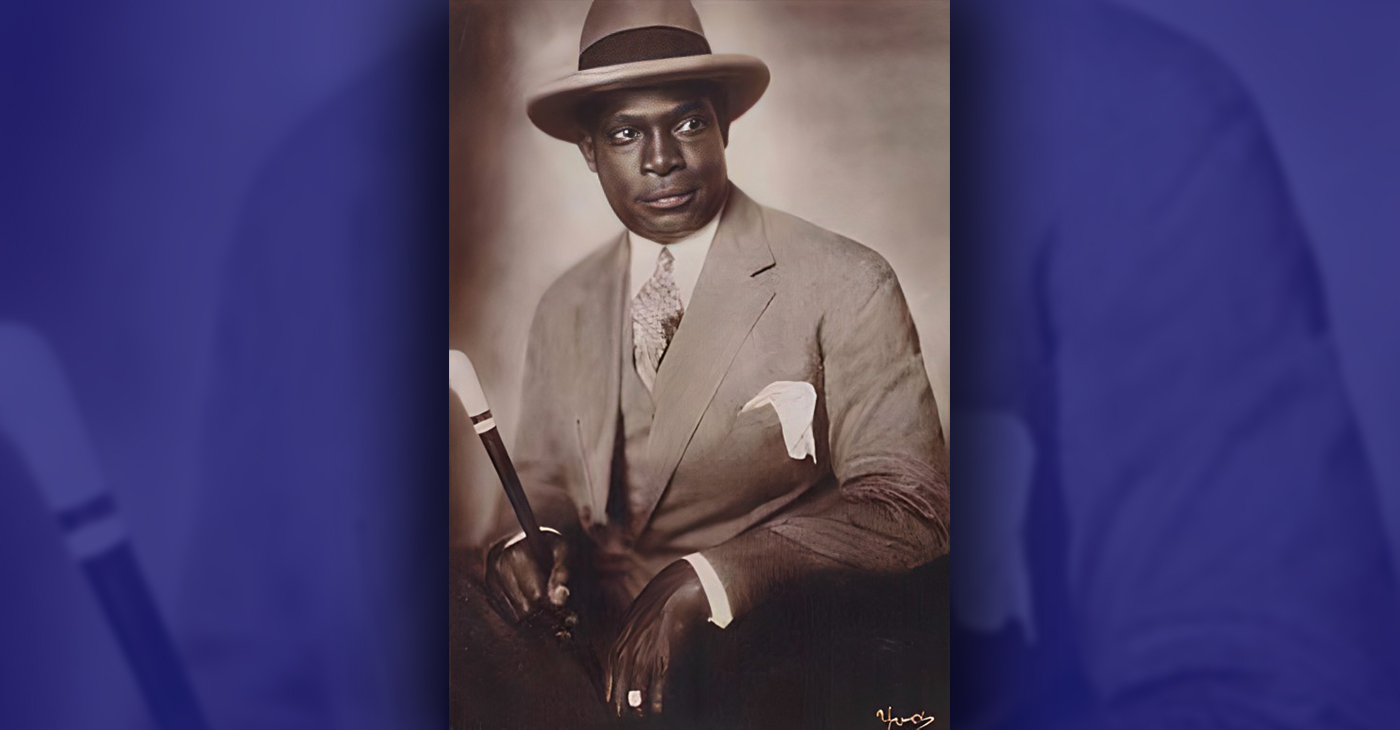Activism
Louis Brody, the “Exotic” German
Born M’bebe Mpessa in the German colony of Cameroon, Louis Brody (1892–1951) won over audiences during the early twentieth century as a prominent actor and musician. He appeared in over 30 films and eventually became the highest-paid Black actor within the German filmmaking industry.

Born M’bebe Mpessa in the German colony of Cameroon, Louis Brody (1892–1951) won over audiences during the early twentieth century as a prominent actor and musician. He appeared in over 30 films and eventually became the highest-paid Black actor within the German filmmaking industry.
Brody’s ability to survive during the Nazi era was considered “astonishing.” He was able to escape treatment common to non-Germans at that time: deportation, sterilization, mob lynching, and concentration camps. When the Nazi government denationalized him through the 1935 Reich Citizenship Law, he avoided persecution by acquiring French citizenship.
Throughout his life, Brody fought to improve the social conditions in Germany. He cofound the African Relief Organization (1918) in Hamburg. As spokesman, he decried racial discrimination and the violence and mistreatment of Blacks.
His expressed views and opinions during the fight for racial equality led him to the German Section of the League for Defense of the Negro Race. Brody also protested the propaganda unleashed against French colonial soldiers stationed in the Rhineland after World War I. Still, he needed to support himself.
Brody played parts in several German propaganda films throughout the war period: African chiefs and stereotypical roles such as servants, porters, and sailors. During World War II, he starred in 14 films including two that, according to Brody’s critics, “advanced Nazi propaganda and were inherently anti-Semitic.” Yet Brody was a skilled and versatile actor.
In several films, he impersonated Arabs, Malays, Indians, Moroccans, and Chinese. In fact, his calling card read: “Performer of all exotic roles on the stage and in film.”
While performing as a musician and wrestler, photos of Brody “exuded the energy of exoticism and racism seen in his film career.” According to German publications, Brody “couldn’t simply be an actor, musician, or wrestler; he had to be a Black actor, musician, and wrestler.” His career as an actor therefore faced significant obstacles, specifically with the subsequent rise of Hitler and the Nazi regime.
Little has been recorded about his early life in Cameroon (then Kamerun). He attended the German colonial school in Douala, where he learned to speak German. It is believed that he arrived in Berlin sometime between 1907 and 1914. He reportedly worked at several odd and low-paying jobs before landing an acting role. What motivated him to relocate there remains unknown.
As the German film industry expanded post-war, Brody took on supporting roles, most notably in the 1921 film “The Weary Death.” He also played the villainous Moor in the 1926 colonial film “I Had a Comrade.” By 1930, he had become the most visible Black actor working in German cinema. But the rise of Nazism would curtail his career.
Brody’s career slowed post war. Still, his life of advocacy for Black Germans and fame in cinema paved the way for other Blacks to gather acclaim within German culture.
Read more about Black Germans during the Third Reich in “Other Germans: Black Germans and the Politics of Race, Gender, and Memory in the Third Reich,” by Tina M. Campt.
Activism
Oakland Post: Week of November 26 – December 2, 2025
The printed Weekly Edition of the Oakland Post: Week of November 26 – December 2, 2025

To enlarge your view of this issue, use the slider, magnifying glass icon or full page icon in the lower right corner of the browser window.
Activism
Oakland Post: Week of November 19 – 25, 2025
The printed Weekly Edition of the Oakland Post: Week of November 19 – 25, 2025

To enlarge your view of this issue, use the slider, magnifying glass icon or full page icon in the lower right corner of the browser window.
Activism
IN MEMORIAM: William ‘Bill’ Patterson, 94
Bill devoted his life to public service and education. In 1971, he became the founding director for the Peralta Community College Foundation, he also became an administrator for Oakland Parks and Recreation overseeing 23 recreation centers, the Oakland Zoo, Children’s Fairyland, Lake Merritt, and the Henry J. Kaiser Convention Center.

William “Bill” Patterson, 94, of Little Rock, Arkansas, passed away peacefully on October 21, 2025, at his home in Oakland, CA. He was born on May 19, 1931, to Marie Childress Patterson and William Benjamin Patterson in Little Rock, Arkansas. He graduated from Dunbar High School and traveled to Oakland, California, in 1948. William Patterson graduated from San Francisco State University, earning both graduate and undergraduate degrees. He married Euradell “Dell” Patterson in 1961. Bill lovingly took care of his wife, Dell, until she died in 2020.
Bill devoted his life to public service and education. In 1971, he became the founding director for the Peralta Community College Foundation, he also became an administrator for Oakland Parks and Recreation overseeing 23 recreation centers, the Oakland Zoo, Children’s Fairyland, Lake Merritt, and the Henry J. Kaiser Convention Center.
He served on the boards of Oakland’s Urban Strategies Council, the Oakland Public Ethics Commission, and the Oakland Workforce Development Board.
He was a three-term president of the Oakland branch of the NAACP.
Bill was initiated in the Gamma Alpha chapter of Kappa Alpha Psi Fraternity.
In 1997 Bill was appointed to the East Bay Utility District Board of Directors. William Patterson was the first African American Board President and served the board for 27 years.
Bill’s impact reached far beyond his various important and impactful positions.
Bill mentored politicians, athletes and young people. Among those he mentored and advised are legends Joe Morgan, Bill Russell, Frank Robinson, Curt Flood, and Lionel Wilson to name a few.
He is survived by his son, William David Patterson, and one sister, Sarah Ann Strickland, and a host of other family members and friends.
A celebration of life service will take place at Henry J. Kaiser Convention Center (Calvin Simmons Theater) on November 21, 2025, at 10 AM.
His services are being livestreamed at: https://www.facebook.com/events/1250167107131991/
In lieu of flowers, donations can be made to the Euradell and William Patterson scholarship fund TBA.

-

 Activism3 weeks ago
Activism3 weeks agoOakland Post: Week of November 12 – 18, 2025
-

 Activism4 weeks ago
Activism4 weeks agoOakland Post: Week of November 5 – 11, 2025
-

 Activism2 weeks ago
Activism2 weeks agoIN MEMORIAM: William ‘Bill’ Patterson, 94
-

 Activism3 weeks ago
Activism3 weeks agoHow Charles R. Drew University Navigated More Than $20 Million in Fed Cuts – Still Prioritizing Students and Community Health
-

 Bay Area3 weeks ago
Bay Area3 weeks agoNo Justice in the Justice System
-

 #NNPA BlackPress3 weeks ago
#NNPA BlackPress3 weeks agoThe Perfumed Hand of Hypocrisy: Trump Hosted Former Terror Suspect While America Condemns a Muslim Mayor
-

 #NNPA BlackPress2 weeks ago
#NNPA BlackPress2 weeks agoTrump’s Death Threat Rhetoric Sends Nation into Crisis
-

 #NNPA BlackPress4 weeks ago
#NNPA BlackPress4 weeks agoProtecting Pedophiles: The GOP’s Warped Crusade Against Its Own Lies






















































